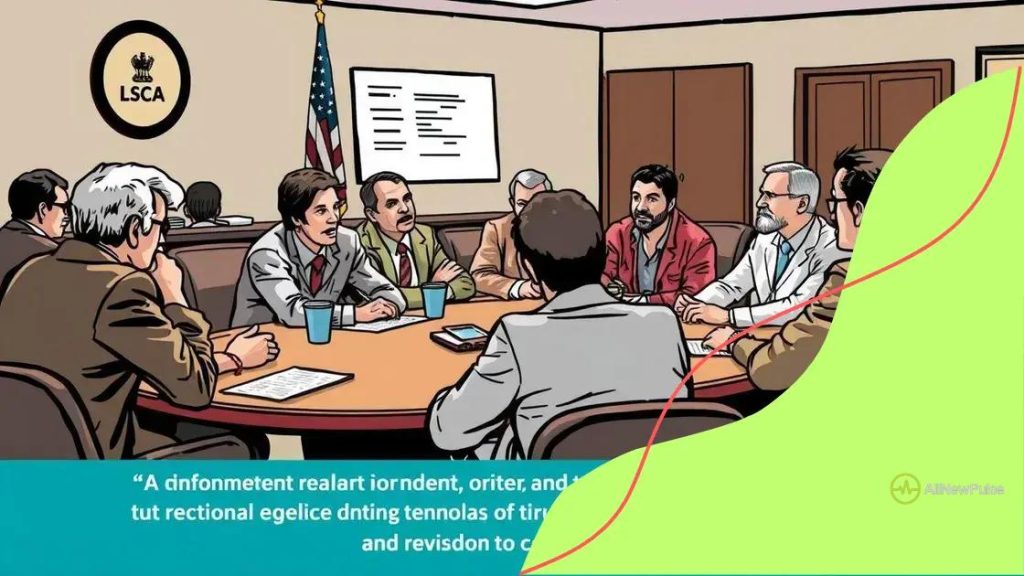Debates surrounding environmental regulations: what you need to know

Debates surrounding environmental regulations involve key players, including government agencies, businesses, and the public, as they seek to address climate change, improve sustainability, and influence policy through advocacy and collaboration.
Debates surrounding environmental regulations are heating up as concerns about climate change grow. Have you ever wondered how these discussions impact your daily life? Let’s dive into this complex issue.
Understanding environmental regulations
Understanding environmental regulations is essential for grasping how our world works. These regulations shape how businesses operate and protect our natural resources. They influence everything from air quality to water safety, impacting our daily lives and the planet’s health.
One prominent type of regulation is the Clean Air Act. This law aims to control air pollution on a national level. Without such laws, industries could release harmful pollutants without consequence. Understanding these laws helps us recognize the balance between economic growth and environmental protection.
The role of federal and state regulations
The federal government sets baseline standards for environmental protection, but states can impose stricter rules. This framework allows states to tailor their regulations to specific local needs, ensuring more effective environmental outcomes.
- States can implement their own standards for air quality.
- Local regulations often address unique environmental concerns.
- Variability in regulations can lead to confusion for businesses.
Another aspect of environmental regulations includes compliance and monitoring. Agencies like the Environmental Protection Agency (EPA) are responsible for ensuring that businesses comply with these regulations. Regular monitoring helps to identify violations and enforce the law, keeping our environment protected.
Challenges in understanding and enforcement
Despite the importance of environmental regulations, challenges exist. Many people are unaware of these laws, which can lead to non-compliance or misunderstanding. Education plays a vital role in enhancing public awareness.
It’s crucial that both businesses and individuals understand the implications of environmental regulations. Knowledge empowers citizens to advocate for stronger protections and compliance. Engaging in community discussions and staying informed about local laws can foster a healthier environment.
Key players in the debate
Key players in the debate surrounding environmental regulations are crucial in shaping policy and public opinion. Understanding who these players are can aid in comprehending how regulations evolve.
Government agencies play a significant role in environmental regulation. The Environmental Protection Agency (EPA) is the federal agency tasked with enforcing laws that protect the environment. State agencies also contribute by regulating local issues that might not be covered by federal laws.
Industry stakeholders
Businesses also have a powerful influence on this debate. Industry groups often push back against regulations they view as overly burdensome. They argue that such regulations can stifle economic growth and innovation.
- Large corporations may lobby against strict regulations.
- Trade associations represent the interests of multiple businesses.
- Small businesses often express concerns about compliance costs.
In addition to government and industry, non-profit organizations and advocacy groups play a pivotal role. These groups often represent public interests and work to ensure that environmental protections are enforced. By raising awareness, they encourage the public to engage in discussions about the importance of strong regulations.
The public’s voice
Public opinion is another key component of the debate. Citizens can influence environmental policies through petitions, voting, and participation in public meetings. When communities advocate for stricter regulations, policymaker attention is drawn, which can lead to changes in laws.
Furthermore, the media plays a significant part in shaping public discourse. Coverage of environmental issues can inform the public and highlight the importance of regulations. As stories unfold, they contribute to the overall perception of how vital these regulations are.
Impact of regulations on businesses

The impact of regulations on businesses is significant and can influence how companies operate. Environmental regulations are designed to protect natural resources, but they also create challenges for many businesses.
On one hand, these regulations ensure companies follow rules that protect the environment. This can lead to improved company reputations and build consumer trust. Environmental responsibility often attracts customers who value sustainability.
Costs of compliance
On the other hand, complying with regulations can incur substantial costs. Businesses may need to invest in cleaner technologies or modify their practices to meet the requirements. This can lead to:
- Increased operational costs for implementing new technologies.
- Potential fines and penalties for non-compliance.
- Administrative costs associated with reporting and monitoring.
Smaller companies may feel these pressures even more acutely, as they often have fewer resources to adapt. Many may struggle to keep up with changing regulations, which can have long-term effects on their sustainability and growth.
Opportunities for innovation
However, regulations can also stimulate innovation. When faced with strict environmental standards, companies often find new ways to operate more efficiently. This can lead to:
- Development of eco-friendly products.
- Improved waste management processes.
- Transformation of business models towards sustainability.
By adapting to regulations, businesses can create a competitive advantage in the market. Many firms that embrace innovation in response to regulations can attract new customers and even open up new revenue streams.
Public opinion and its influence
Public opinion and its influence on environmental regulations can shape policies and decisions. When communities voice their concerns, it prompts policymakers to take action.
Public awareness about environmental issues has risen significantly. This increased awareness leads to more people understanding the importance of regulations that protect natural resources. As a result, when citizens express their opinions, it can spark political debates and community actions.
The role of social movements
Social movements play a critical role in shaping public opinion. Activists and organizations often raise awareness about environmental issues through campaigns and educational programs. These initiatives encourage community involvement and help the public see how regulations impact their lives.
- Grassroots movements often mobilize local communities.
- Social media amplifies voices and spreads awareness quickly.
- Public protests can garner attention from the media and policymakers.
As a result, policymakers may feel pressure to respond to these movements. Changes in public opinion can lead to stricter regulations or even the introduction of new policies aimed at addressing environmental concerns. When citizens unite around a cause, they can affect real change.
The impact of surveys and polls
Surveys and polls also highlight public sentiment regarding environmental regulations. These tools provide insights into how people feel about specific issues. When results indicate strong support for environmental protections, lawmakers might prioritize those issues.
It’s important to remember that public opinion is not static. It can shift based on current events or new information. This dynamic nature means that continuous engagement and education are necessary to maintain support for sustainable policies. By keeping the conversation alive, communities can ensure that public opinion remains aligned with effective environmental action.
Future trends in environmental legislation
Future trends in environmental legislation are evolving as society becomes more aware of environmental issues. As climate change and pollution become more urgent problems, regulations are adapting to address these challenges.
One significant trend is the shift toward more stringent regulations aimed at reducing carbon emissions. Governments worldwide are recognizing the need for aggressive action to combat climate change. This has led to an increase in laws that require businesses to lower their greenhouse gas emissions.
International cooperation
Collaboration between countries is also on the rise. International agreements, such as the Paris Agreement, aim to bring nations together to tackle climate change. These agreements push countries to commit to lowering emissions and promoting sustainability.
- Countries set specific targets for reducing emissions.
- Sharing technology and resources fosters innovation.
- Global cooperation enhances environmental protection efforts.
In addition to international cooperation, renewable energy legislation is rapidly being adopted. Governments are incentivizing the use of solar, wind, and other renewable energy sources. By providing tax breaks and subsidies, they encourage businesses and individuals to invest in clean energy technologies.
Increased public involvement
Public awareness is also driving future trends in legislation. Citizens are voicing their concerns more than ever, demanding stronger environmental protections. This increase in activism can lead to more comprehensive laws that emphasize sustainability.
Moreover, advances in technology are impacting how regulations are created and enforced. Innovations in data collection and monitoring tools allow for better compliance tracking. These technologies help ensure that companies adhere to environmental standards more effectively.
As we move forward, we can expect to see a continuous evolution in environmental legislation. Governments will need to respond to emerging challenges with innovative solutions. By focusing on sustainability, collaboration, and public engagement, the future of environmental laws looks to prioritize both people and the planet.
In conclusion, the landscape of environmental regulations is changing rapidly. As awareness about climate issues grows, more people are advocating for stronger laws. Key players, including businesses, government agencies, and citizens, all have a role in this dynamic debate. The influence of public opinion is undeniable, driving lawmakers to prioritize sustainability. Looking ahead, future trends will focus on innovation and international collaboration to combat environmental challenges. Engaging in this conversation is vital for ensuring a healthier planet for future generations.
FAQ – Frequently Asked Questions about Environmental Regulations
What are environmental regulations?
Environmental regulations are laws designed to protect the environment by controlling pollution and conserving resources.
How do public opinions influence environmental legislation?
Public opinions play a crucial role by driving lawmakers to prioritize stronger environmental protections based on community concerns.
What is the impact of renewable energy incentives?
Renewable energy incentives encourage the use of clean energy sources, leading to reduced dependency on fossil fuels and lower carbon emissions.
Why is international cooperation important for environmental issues?
International cooperation allows countries to work together on climate agreements, sharing resources and technology to address global environmental challenges.





